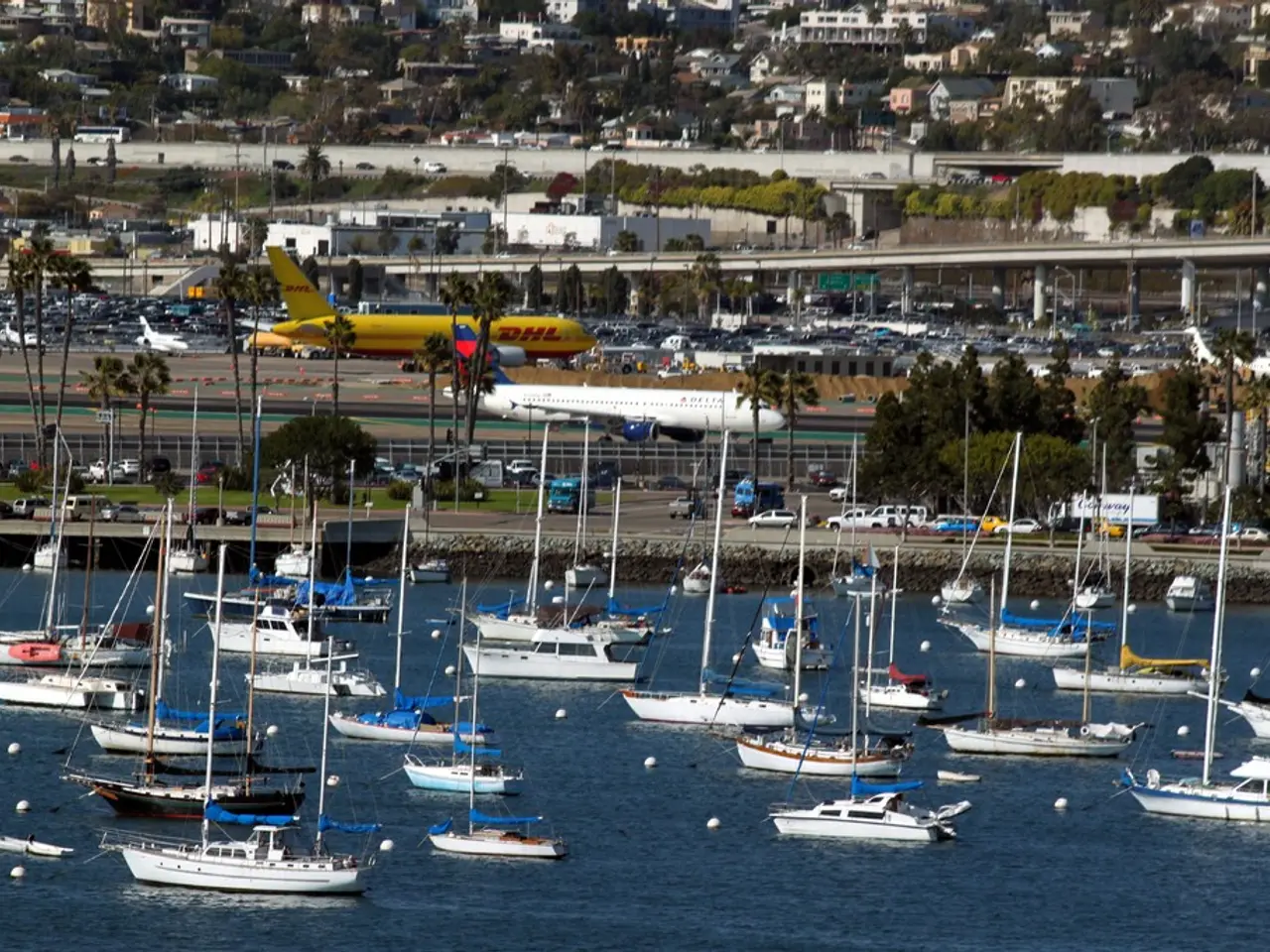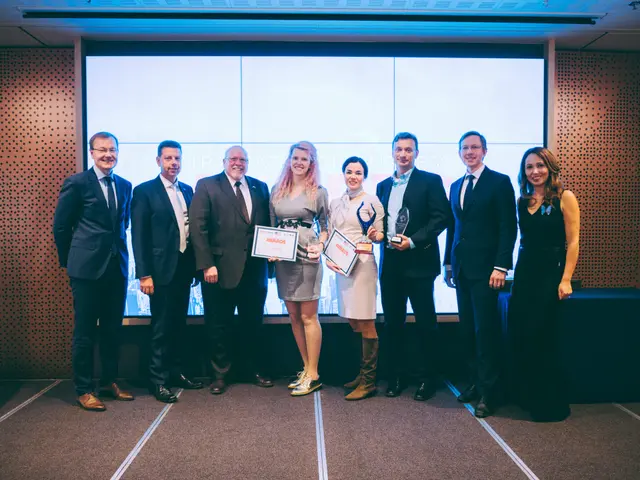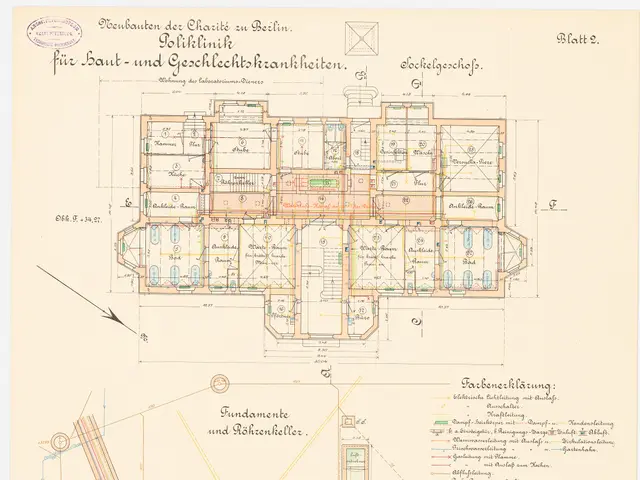Germany's principal shipbuilding company, TKMS, secures autonomy and self-governance.
Thyssenkrupp AG's marine division, TKMS, is set to go public, marking a significant step in the company's planned corporate restructuring. The division, Germany's largest naval shipbuilder, is expected to be registered by mid-October and will have a stock market listing immediately afterwards [1].
The spin-off of TKMS was predominantly positively received at the general meeting. However, concerns regarding governance structure have been raised by shareholders. The supervisory board of TKMS AG & Co. KGaA, after the spin-off and IPO, will have 10 members, including 4 independent representatives [2].
Thyssenkrupp AG will retain a 51% majority stake in TKMS, ensuring strategic steering and stability, while 49% of shares are directly allocated to shareholders, ensuring some independent public ownership [3][4]. This arrangement aims to combine the benefits of entrepreneurial independence for TKMS with the backing and stability of a strong anchor shareholder in thyssenkrupp AG [4].
Shareholders have expressed concerns regarding the balance between TKMS's autonomy and Thyssenkrupp AG’s majority strategic control. The fear is that this majority ownership could limit TKMS's operational independence despite its access to capital markets and entrepreneurial freedom emphasized by management [4][5].
The federal government is planning a security agreement with TKMS, granting them special information and consultation rights for sensitive activities. The security agreement is set to be concluded by the end of September [6].
TKMS employs around 8,300 people and has shipyard locations in Kiel, Wismar, Itajaí, Brazil, Hamburg, Bremen, and Emden [7]. The company is the world leader in conventionally powered submarines and also builds frigates and corvettes [8]. TKMS has full order books and numerous submarine orders from Germany, Norway, Israel, and recently Singapore [9].
The attractiveness for investors increases due to the clear focus on TKMS's business model. The company has been awarded the construction of the new German research vessel 'Polarstern 2' with an order volume of around 1.2 billion euros [10].
The independence of the marine division is part of a larger planned corporate restructuring at Thyssenkrupp for the coming years. The other four divisions of Thyssenkrupp are also planned to be set up independently and opened up for third-party participation [11].
The CEO of TKMS is Oliver Burkhard, who was previously the HR director at Thyssenkrupp [12]. An acquisition of shares by the Federal Republic of Germany is not part of the current agreement, but Thyssenkrupp is open to further discussions [1].
In conclusion, the spin-off of TKMS from Thyssenkrupp and its subsequent IPO marks an exciting step for the marine division. However, shareholder concerns regarding governance structure and the balance between TKMS's autonomy and Thyssenkrupp AG’s majority strategic control remain a topic of discussion.
The spin-off of TKMS will lead to an increase in independent public ownership, as 49% of shares will be allocated to shareholders [3][4]. To address shareholder concerns, the supervisory board of TKMS AG & Co. KGaA will have 10 members, including 4 independent representatives [2].








